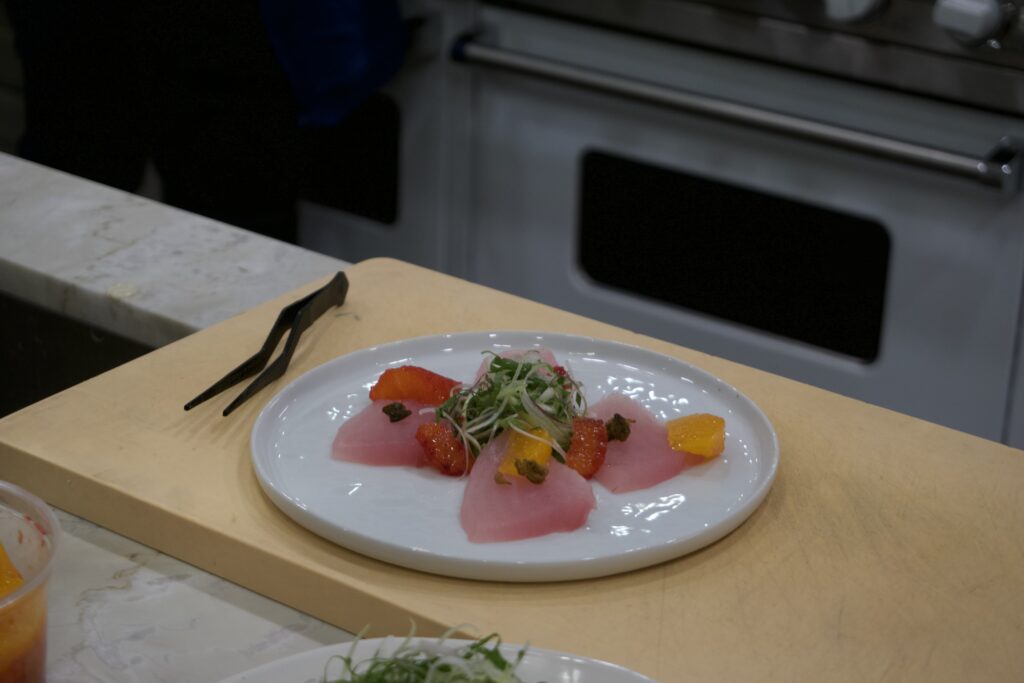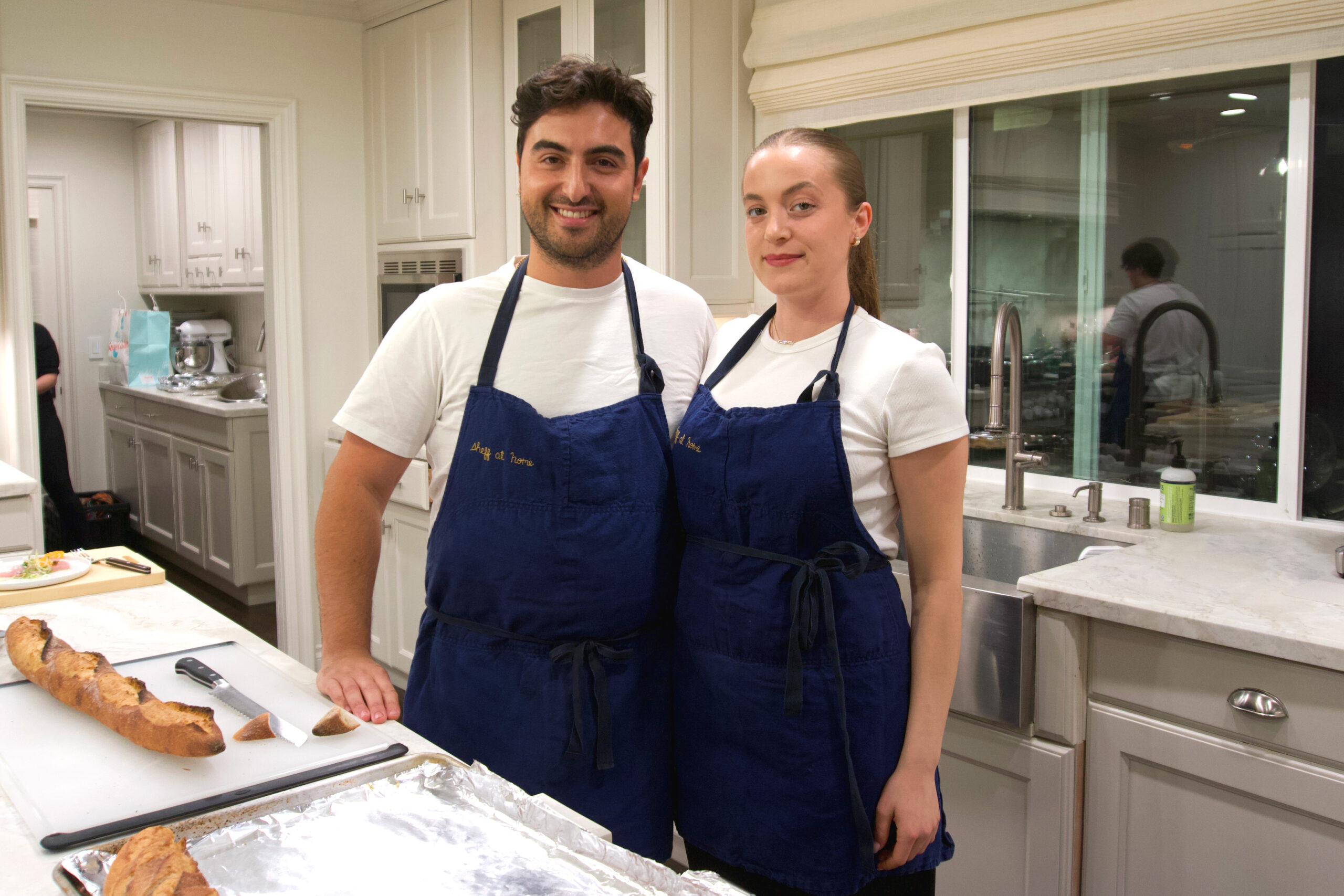Sam Sheff worked in the world of real estate prior to becoming a private chef. With a degree in finance and marketing, Sheff felt real estate was what he should do after graduating college. Now, watching him in the kitchen, I can’t imagine why he would use his talents on that. Standing in a pristine kitchen of a Beverly Hills home, I watched Sheff lead his team of four with confidence and certainty. They were preparing for guests to arrive for a dinner party in just under half an hour, but Sheff wasn’t frantic or worried by any means. He was prepared and strategic–the sign of an experienced chef.
Like many private chefs, Sheff got his start in the restaurant business. In 2017, he moved from Los Angeles to New York, working front-of-house at Eleven Madison Park, a three star Michelin restaurant offering plant-based fine dining. After that, he assisted in opening and managing Amala, a Middle Eastern restaurant in New York with an Israeli chef. His experience at Eleven Madison Park and Amala set him up for success in understanding the inner workings of a kitchen, and more specifically, the business side of the culinary industry. He now uses his business-oriented mind to manage three chefs and three servers for his private chef business.
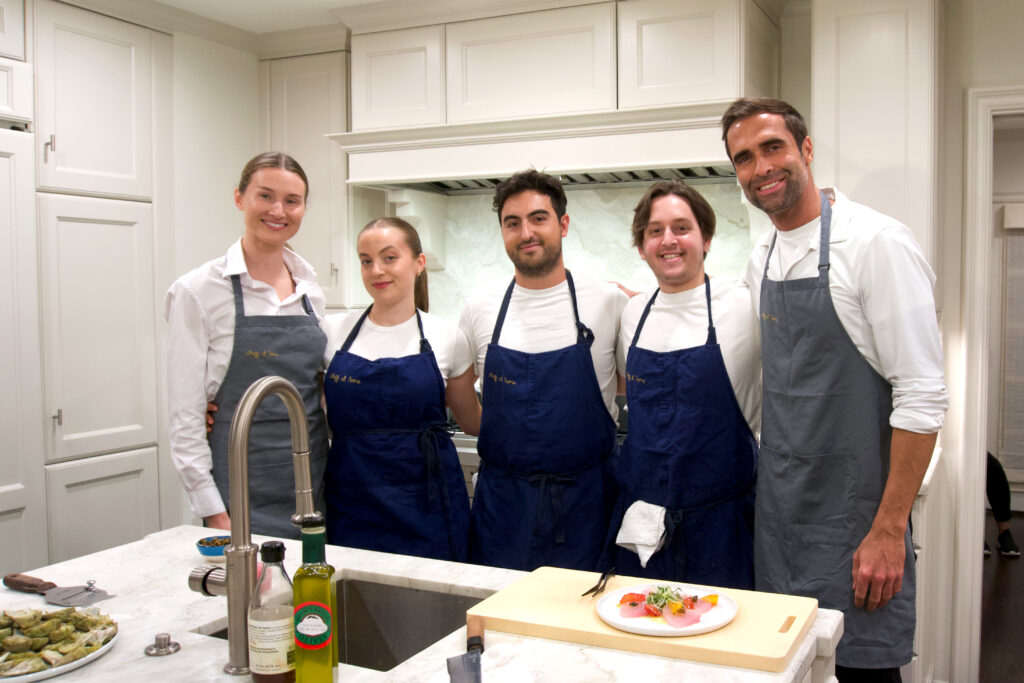
“I didn’t want to do [personal cooking] because I don’t want to fall into the black hole of cooking for the same people,” Sheff said. “You meet so many people along the way, and it’s been awesome doing it.”
Following Covid-19, Sheff moved back to Los Angeles to further pursue his culinary career. His Moroccan and Jewish background influenced his passion for food. He started creating dishes for Shabbat every Friday for different families, perfecting his menu and pricing.
“It’s all about bringing family together, coming to the table, a lot of food, some rich beautiful dishes, a lot of traditional aspects,” Sheff said. “I also learned that you’re not just charging for food, you’re charging for your time. You’re not a restaurant that’s in operation, and their doors are open.”
As more and more clients loved his food, he was in-demand. He began a private dining and catering service, Sheffathome, and slowly hired both chefs and servers to assist in his business. Mimi Guetta, his first hire, came to the culinary industry through an unconventional path. Guetta’s Jewish background also informed her love for food–growing up, she always admired her mother’s unique and diverse dishes for Shabbat. “I think without realizing it, I just had it in me,” Guetta said.
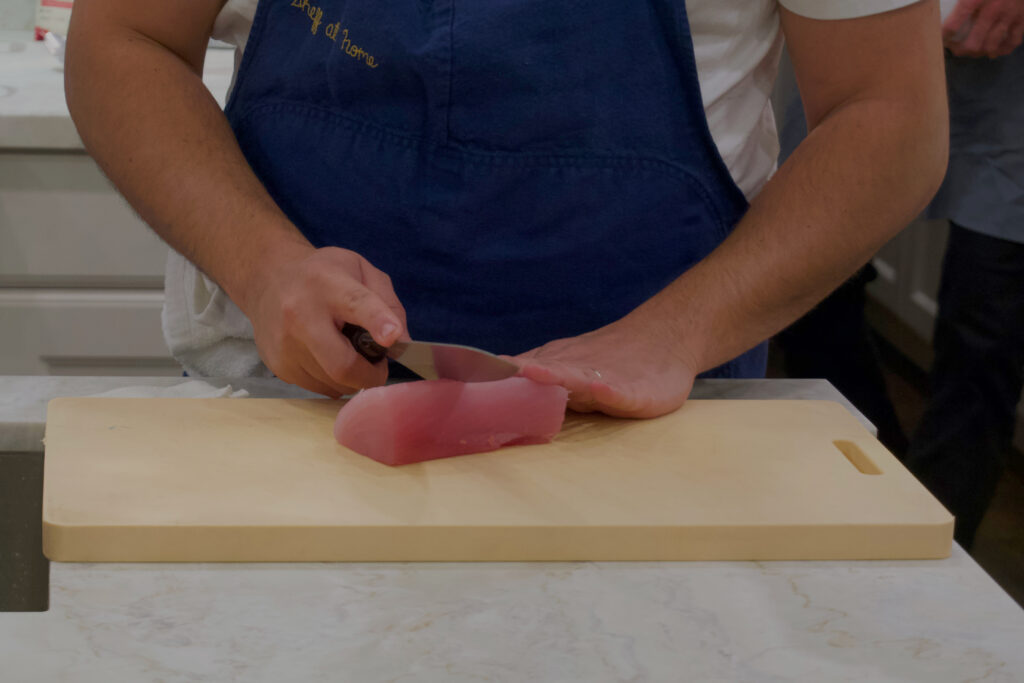
After high school, Guetta went to trade school to become a nail tech. In the meantime, she continued to cook for herself and her friends and family. “If I had other people to cook for, I felt ten times more inspired to be creative,” she said. Guetta’s sister, a former chef, found Sheff on Instagram. After contacting him, Guetta and her sister hosted Sheff at their house for dinner. “We all fell in love with him and just his work in general,” Guetta said. “And I think a flip literally switched in my head the day that he came over, because I just saw the kitchen and cooking and food in such a different way.”
There appears to be a pattern in Sheff’s world: he inspires other chefs, and other chefs inspire him. His warm nature and open-minded attitude makes it easy to see why. Even upon meeting, he enveloped me in a warm hug and never stopped asking questions about my life.
“I’m friends with a lot of amazing chefs, so I’m always having open dialogue with them,” Sheff exclaimed. “And I’ve had some great moments where I have cooked for some old people I worked with, and they’ve all been so impressed and that was a full circle moment for me because you have a lot of impostor syndrome in this line of work.”
With a team behind his back, he has expanded his menus and cuisine. While still honoring his roots and the city, each menu is custom for each event. Sheff and his team will tweak recipes that they know and love for each client depending on their palate, dietary restrictions, and the event.
“I like to keep the ethos of the food we do just Californian food, but also honoring Mediterranean tradition,” he said. “What that really means is the style of eating, the presentation of the dishes, the flavors and ingredients are all kind of old scroll, old world vibes, but with little cool, modern twists and updates.”
Sheff loves his job. He gets to be creative and cook food that means something to him. Having experience in both restaurants and running his own private business comes with different sets of challenges. While the expectations at a fine dining restaurant may be higher, the hours and inconsistency of private cooking can be demanding, forcing private chefs to be resourceful and self-reliant.
For Guetta, his right-hand-man, her hours must be created and managed by herself and herself only–accountability is key in the industry. For one client, a couple she cooks dinner for a couple days a week, Guetta spends the entire morning grocery shopping, three hours during the day prepping at home, and three hours at night in the client’s home serving. Work can even come and go seasonally. “The downside is the consistency,” Sheff said. “Maybe in one week you won’t have a job, some weeks you will have two or three jobs.”
Especially working with recurring clients, boundaries can get tricky. Hendley writes in Cultural Sociology that private chefs are “caught in an occupational middle ground” and that their “status vis-à-vis both clients and other workers is uncertain. Their position is not only ambiguous, but also precarious.” “Precarious” seems like the perfect word. Sheff and Guetta both have learned how to navigate the complex and nuanced position of a chef-at-home in such an intimate work environment.
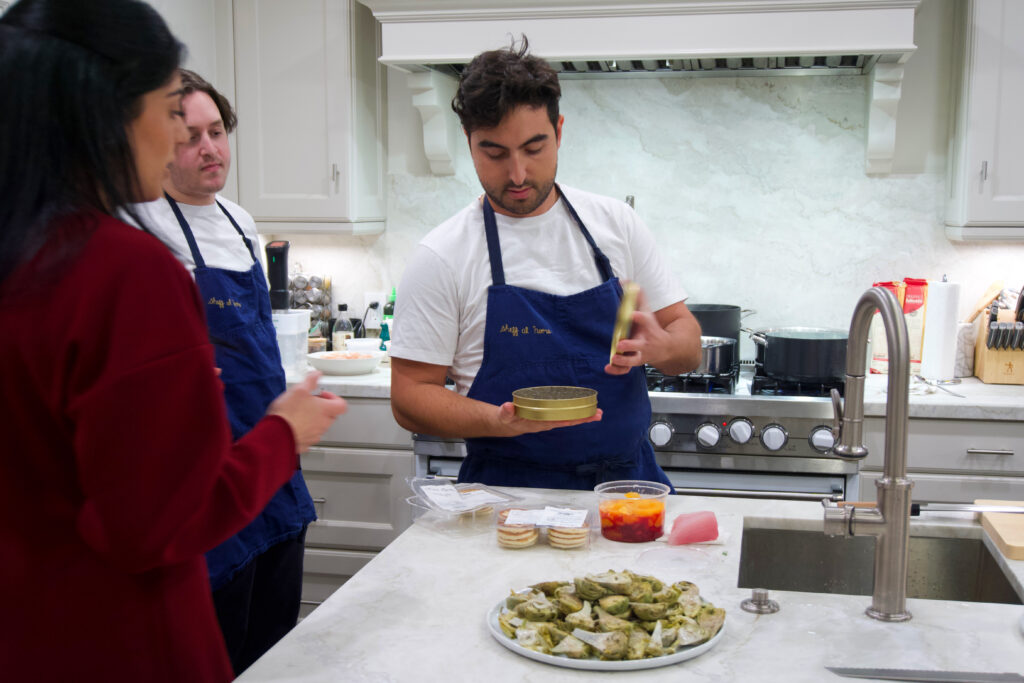
“Especially being in their home, and if it’s a certain kind of personality of your clients, they can be treating you like you’re a friend, but that doesn’t mean that you can treat them like a friend,” Guetta comments. “I feel like that’s something that you really have to keep in mind in this industry.”
After asking so many members of the industry, private chefs, restaurant chefs, culinary teachers, and more, each person has a different answer if they think private chefs are “real chefs”. For some, the answer doesn’t even seem to matter to them. As a member of both the private and public culinary world, I asked Sheff this ongoing question. He laughed a bit to himself, almost as if he’d heard the question millions of times before.
“I think a lot of exposure helps you create better food. You could be a chef at a restaurant but have never really gone out to eat and haven’t traveled much. It’s going to be a lot harder for that chef to be creative and inventive on his own or her own because all they know are those recipes that are being fed to them.”
